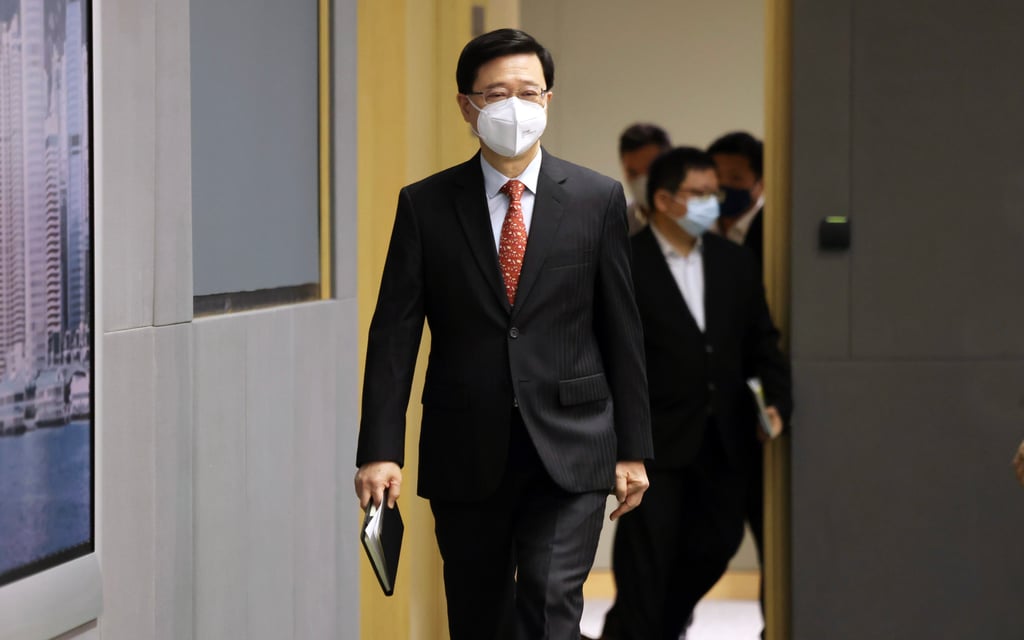Coronavirus: Hong Kong leader dismisses talk city’s financial and tech summit will flounder despite Singapore hosting fintech event at same time
- Chief Executive John Lee says guests are keen to attend international events slated for the start of November
- Hong Kong’s daily Covid caseload continues to drop, falling to 7,218 on Tuesday

Hong Kong’s leader has vowed to host a “successful financial summit” for finance and tech experts in November amid stringent quarantine rules and despite the event coinciding with a mega fintech gathering in Singapore.
“When the government deals with the pandemic, it has to mull its measures holistically,” Lee said at his weekly press briefing.
“We fully understand that our normal operation, business activities and competitiveness are important. But from the government’s perspective, we also have to … protect our medical system … and safeguard our overall health and safety.”

His comments came as the city’s daily reported coronavirus infections continued to drop, reaching 7,218 on Tuesday, despite a three-day Mid-Autumn Festival holiday that officials had warned could cause a rebound in cases because of more social gatherings.
The figure included 151 imported cases, while health officials reported 10 more related deaths. The city’s overall tally stood at 1,667,130 cases, with 9,820 related fatalities.